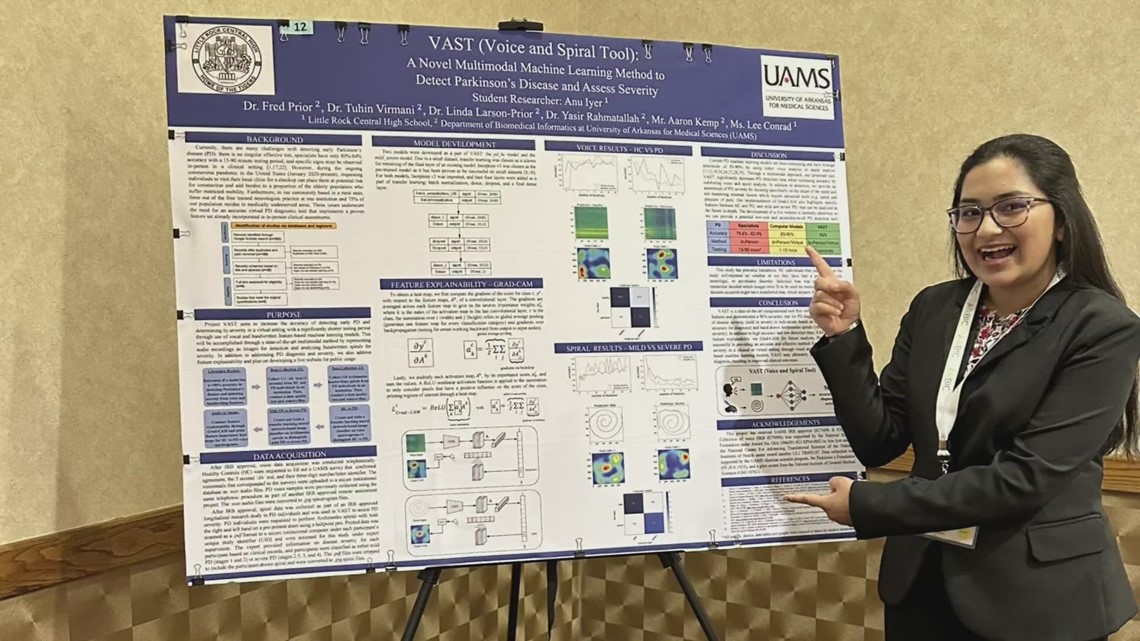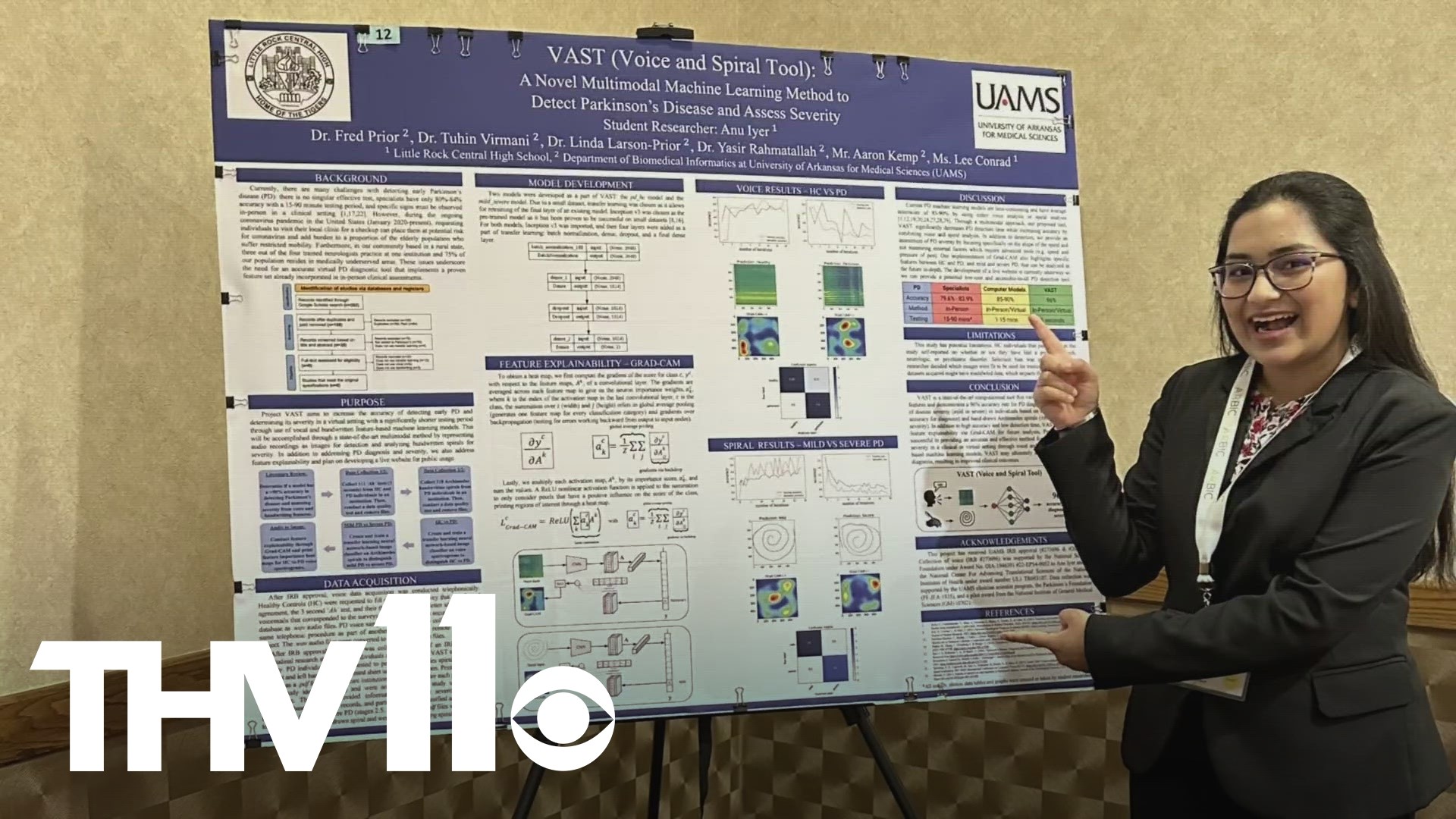LITTLE ROCK, Ark. — A 19-year-old young woman from Arkansas can now add being a published researcher to her accomplishments after co-leading a study on Parkinson’s disease.
“I’ve created a tool that uses voice and spirals to take Parkinson's disease, and assess severity, which should be detecting whether it's mild or severe," said Anu Iyer.
Iyer is a freshman at the Georgia Institute of Technology who has collaborated with several researchers at the University of Arkansas for Medical Services and recently published a study on Parkinson’s disease.
“VAST, which is the voice and spiral tool, is essentially a machine learning algorithm that can detect Parkinson's disease based on voice samples and handwriting samples with a very high accuracy. And so we recently just published our results in Nature and I was a co-first author on that," Iyer explained.
The model can detect Parkinson’s disease with a 97% accuracy.
“I imported a machine learning model that was previously already out there called Inception v3, and added a few of my custom layers to just make the accuracy a bit better," Iyer described.
While the possibilities are endless for her future, she said that it's where she started that’s shaped her.
“When people ask me who I am, I start off with the fact that I'm Anu and I'm from Arkansas, I'm from Little Rock," Iyer said. "I just really want to shout out my Little Rock Central High teachers, Mr. Foley, Dr. Maris, Ms. Conrad, I feel like all of the science teachers at Central High really pushed me towards becoming who I am today, and I just really am thankful for them.”
As an official member of the UAMS formal research team at just 17 years old, Iyer spent late nights finishing up code and early mornings working on drafts of proposals creating a computer algorithm to detect the disease that impacts the nervous system.
"I started Parkinson's, specifically in 11th grade, working with Dr. Prior [Department Chair of Biomedical Informatics at UAMS] in 10th grade, and we specifically focused on machine learning and cancer. In the 11th grade, he really wanted me to continue working with them and I also wanted to really work with them," she said.
While Iyer hasn't been directly impacted by Parkinson’s, a statistic presented to her by Dr. Prior made her realize she was doing impactful work.


"He told me that there are only four neurologists in this entire state that can detect Parkinson's, and three of them practice a UAMS. I just found it so fascinating to be like a member, a resident of Arkansas rural state, and to know that, you know, residents in my state don't have access to these type of health care resources," Iyer described. "That's why we kind of pushed towards this project to provide sort of a virtual method for people who aren't able to travel all the way to UAMS if they live somewhere on the other side of the state.”
The group then conducted a group survey on people across the entire state, asking each person to draw a spiral and record their voice for three seconds.
“Specifically, when it comes to Parkinson's, it actually, when analyzing, like phonation voice frequency, you can actually determine whether or not a person has Parkinson's or not from just three seconds of voice, which is something that we found really fascinating," Iyer said.
With Arkansas being a rural state especially when it comes to medicine, she said just asking someone to say three seconds of voice would be way easier than someone traveling and coming into the clinic to test for Parkinson's hours away.
Iyer said that her goal is to be an empathetic researcher with a focus on addressing and reducing healthcare disparities.
In the meantime, she hopes to inspire younger Arkansans to just try for their goals— especially young women looking to get into the field of medicine and STEM.
“Taking the first step is often the most fearful. But once you like, overcome the first barrier, it's just like smooth sailing, and you're really going to be able to enjoy what you're doing, so just try," Iyer said.

